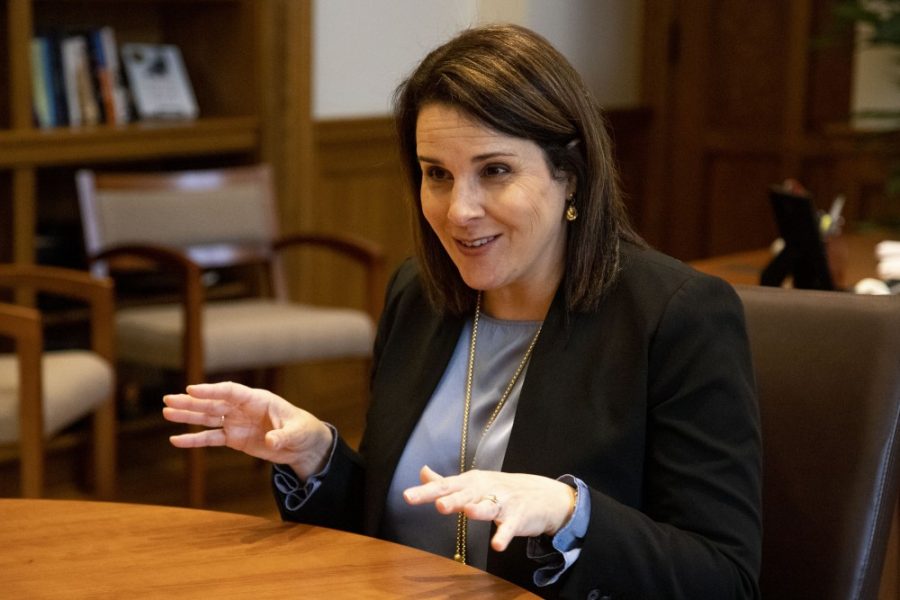University of Minnesota President Joan Gabel announced her resignation from the Securian Financial Board of Directors late Monday in a letter to the Board of Regents leadership.
This announcement comes more than a month after the board voted to approve a conflict of interest management plan at their Dec. 16 meeting, which green-lit Gabel’s position at Securian. The plan passed 9-3 with some members expressing ethical concerns and possible conflicts of interest.
The position offered an annual salary of $130,000. Gabel stated in the letter Monday that she waived the compensation and had not received benefits yet from Securian.
The University currently has a $4.6 million contract with a Securian affiliate, Minnesota Life, to oversee employee life insurance. Gabel plays a role in contract renewal decisions with the company and would have a say in direct financial relationships between the University and Securian.
“The last several weeks have been extremely painful for me and, I’m sure, very uncomfortable for you,” Gabel said in her resignation letter. “Out of respect for the institution and to eliminate any further distraction of our work, with a heavy heart, I will be resigning my Securian Financial directorship effective immediately.
Minnesota state Sen. John Marty (DFL-St. Paul) asked Gabel to step down from the Securian position in a letter on Jan. 2 stating that it created a conflict of interest.
On Jan. 14, Regent Darrin Rosha sent a request to fellow board members to meet for a special board meeting to reconsider Gabel’s role at Securian had she not resigned. Rosha cited a Minnesota statute, which prohibits parties that have contracts with the University from reimbursing staff members who take part in the renewal process.
“We find it to be a decision that serves the public interest and reaffirms the President’s unwavering commitment to advance the mission of the University of Minnesota,” the board said in a statement on Monday.
Students have also pushed back against Gabel’s appointment, including University Council of Graduate Students member Emily Kurtz. In a letter to the regents on Saturday, she urged the board to reconsider Gabel’s Securian position.
“Beyond the blatant conflict of interest, we doubt she can do her job as well as she should when part of her working time will be dedicated to a group that is not the University,” Kurtz said in the letter. “The president already makes over a million dollars when all compensation is added up, and the average grad student makes just short of $20,000.”



















